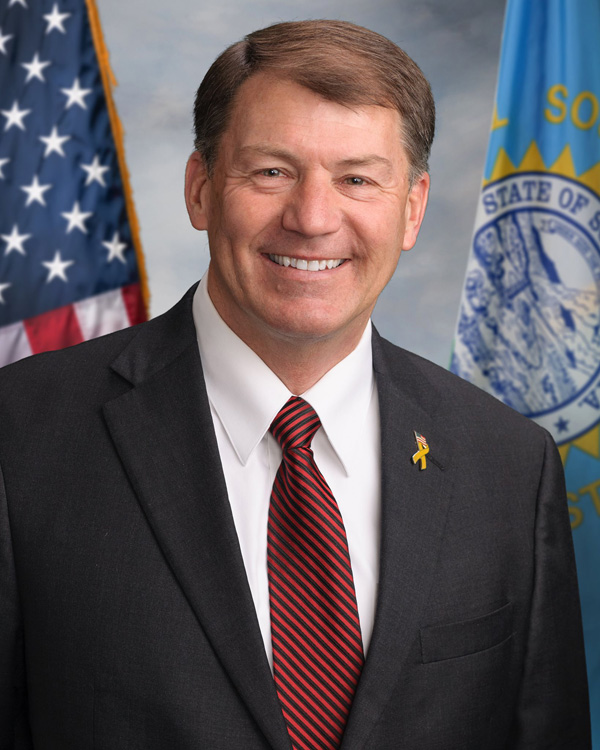

Working to Answer Your COVID-19 Healthcare Questions
By U.S. Sen. Mike Rounds (R-S.D.)
As COVID-19 continues to spread in our state and across the country, South Dakotans are reaching out to my office for answers about how this virus will impact the economy and their businesses, and also how they can protect their health. The Centers for Disease Control (CDC) is continually putting out new guidance on their COVID-19 website with tips on how to protect against getting the virus, and what to do if you suspect you may have it. The CDC is a great resource, and I encourage folks to check out their site, www.cdc.gov. We’re also compiling the latest information from CDC on my website, www.rounds.senate.gov/covid19.
While it’s nice to have easy access to accurate information online, sometimes it’s better to be able to ask your specific questions to a medical doctor. I spent my career in the insurance business, so I’m the first to admit I don’t know the answers to all of the medical questions we’ve received! That is why I’ve brought in experts to join me on my recent telephone townhalls that all South Dakotans are invited to join. We were recently joined by Dr. Mike Wilde from Sanford Health and Dr. Jennifer McKay from Avera Health. On another telephone townhall, we were joined by one of my fellow senators, Dr. Bill Cassidy. Dr. Cassidy is a senator from Louisiana and is also a gastroenterologist. Additionally, he has a background in public health and vaccine programs, making him an ideal guest to answer questions about COVID-19.
Many of the questions answered by the doctors on our calls are questions that we’ve seen all over social media, on the news and through phone calls and emails to my office. Here are some of the most frequently asked questions, along with the answers given on our townhall calls:
Q: Is it safe to go to a clinic or hospital for a reason other than coronavirus if it’s not urgent?
A: It really depends on the reason, and it’s a good idea to call your physician to get their recommendation. If you do go to a medical facility, you should wear a mask to cover your nose and mouth. You can even make a mask out of a scarf or a bandana.
Q: How is COVID-19 different from the flu?
A: We see anywhere from 10,000 to 80,000 deaths from the flu, depending on the year. Typically, the people who die from the flu are newborns or people who are 85 years and older whose immune systems are not as strong as they once were. For the rest of us, we’ve been exposed to the flu virus for as many years as we’ve been alive, whether that’s from getting the flu shot each year or just from being around it in the environment. That exposure helps us to build up immunity to it. COVID-19 is different because none of us have previously been exposed to this particular type of coronavirus. Therefore, more people at different stages of life are at risk of COVID-19, which makes it different and more dangerous than the flu.
Q: If we live in a small town with very few positive cases of COVID-19, do we still need to wear a mask when we go to the grocery store?
A: Yes, it’s advisable to wear a mask when you go into a store right now. When you pay the cashier, you won’t be 6 feet apart from them–you’ll likely be a foot or two away. 50 percent of people who are infected never have symptoms, so you may not know that you’re near someone who is carrying the virus.
Q: I work at an essential business that will continue to stay open throughout the pandemic. How can I protect myself at work?
A: Wear a mask, try to keep 6 feet apart from other people, wash your hands regularly for 20 seconds under hot water.
Q: How long until a vaccine is widely available?
A: It could be anywhere from 12 to 18 months until a vaccine is available to the public. The best evidence right now shows that when someone gets COVID-19 and recovers from it, they are then immune to it. This would be great news, and if we were able to track immunity in our cities and towns, we’d be able to get back to normal more quickly. Part of the CARES Act that was signed into law has specifically targeted accelerating the development of therapeutics and vaccines. This may increase the speed at which these vaccines are made available in large quantities.
As we continue learning more about COVID-19, new questions arise. We’ll continue holding telephone townhalls with South Dakotans to try to answer as many questions as we can. I’m very grateful to all the nurses, doctors and medical professionals in South Dakota who are working around the clock to save lives right now. I’m also thankful to Drs. Cassidy, Wilde and McKay who took time out of their busy jobs to join our telephone townhalls.
Please don’t hesitate to reach out to my office if you need any help right now. We’ll do our best to get you answers. Continue to practice the social distancing and other tips from the CDC as we work together to beat COVID-19.
